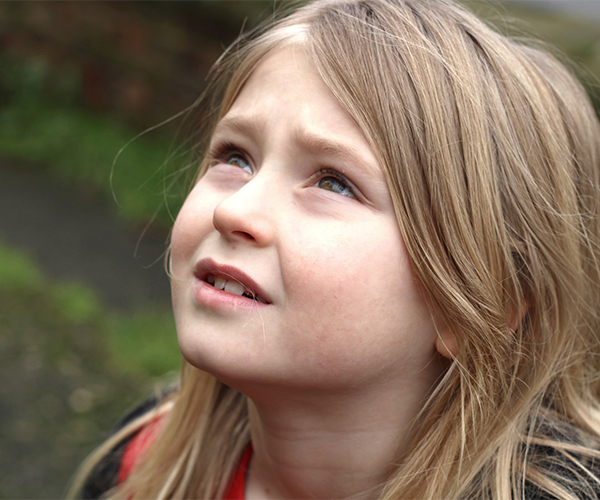
Summer doesn’t want to go on school camp. She’s in grade 3 and camp will be the very first time a night away from her mum and dad doesn’t mean having nan coming over and staying the night in the family home. Summer is starting to get invitations for sleepovers but, so far, has opted for a pick up from a friend’s after dinner. Even going to a friend’s for a few hours took some working up to.
The impending camp is posing a challenge for Summer and her mum, in particular. Like in most families, there’s one parent anxious kids tend to lean on and turn to more than the other. Summer’s mum gets how important it is for her to go but Summer is flatly refusing. She doesn’t want to go and “nobody can make her”.
Any of this sound familiar?
When it comes to anxiety it can feel so frightening and overwhelming that the natural response is for kids is to dig their heels in and opt out. They don’t want to do/go near/participate in anything that amps their anxiety up – there’s just way too much discomfort, distress and worry. Avoidance is so much more comfortable.
It’s so hard for anxious kids when it comes to these sorts of challenges. The worries, the ‘what ifs’, the racing hearts, dizziness, tears, tingling, shortness of breath and other physical anxiety symptoms make little people (and big people) feel scared and awful. When all of this happens it’s completely natural to seek safety. It’s protective, all of our brains are wired this way. But for some, the threshold of threat detection is low and safety is sought often.
So how much do I push?
This is one of the most common questions I’m asked by parents. Anxiety impacts kids in so many different ways that each situation might be different but the answer is the same. We don’t push. But with consistency, empathy and the end goal always in mind, we gently nudge. We don’t want to accommodate avoidance, it only makes anxiety worse. At the other end of the spectrum, it’s not helpful to throw anyone in at the deep end either.
You’ll know too, that parenting an anxious child causes a lot of, well, anxiety. That’s the contagious nature of anxiety, particularly in families. So let’s stop for a moment and get you in the right headspace for the opportunity that awaits.
Prepare yourself for some personal discomfort first
Parenting an anxious child is challenging and when they’re upset, overwhelmed and bent on ‘not doing it’ it’s especially hard. Overcoming anxious avoidance takes time and perseverance; some days will be harder than others. For both of you. There will be times when it feels much easier to relent and compromise (try not to retreat!). Some days you will, other days you’ll have more strength to press on. There’s no right or wrong, you’ll find your balance. Have compassion for yourself and your child along the way, and remember that the work you’re doing together is important and meaningful. Now, and over a lifetime.
How can parents help anxious avoidant kids?
A great way to think about your role here is as your child’s coach. A coach’s role is to lead, teach, encourage and support.
When coaching anxious kids we educate, we identify where upskilling or problem solving is required, we meet those needs and we walk beside them, guiding them towards their goals and towards what we know is really important for them; camp, sleepovers, job interviews, talking on the phone, presenting in class and making eye contact are just a few examples.
This you can do but it takes time, patience and planning.
- Help your anxious child understand anxiety
I can’t tell you how much I would have loved someone telling me what the heck was going on in my body and my mind when I was an anxious kid. I couldn’t breathe properly, I couldn’t concentrate and I was worried all the time. Educating anxious kids about what’s happening when their anxiety shows up is an important first step.
- Help your anxious child get curious about their anxiety
When anxiety shows up it can feel dreadful but despite all of the psychological and physiological changes that come with anxiety, it’s not life threatening. What if you could support your child to get curious about what happens? As they learn about anxiety and how it’s a protective response they can make much more sense of what they feel.
Racing heart? That’s your body pumping more blood to your arms and legs so you can protect yourself.
Breathing faster? Your body needs more oxygen for energy so you can fight for your life or flee in a dangerous situation.
Tummy feeling sick? That’s because the blood that would normally be in your tummy is needed in your arms and legs so you can defend yourself more powerfully.
Can’t stop worrying? Your mind is working hard to solve this problem.
Helping anxious kids get curious about their anxiety can take a lot of the fear out of it when it shows up and helps with a willingness to make room for all that comes with it.
- Teach anxiety management skills
In my blog article ‘6 critical skills for anxious kids’ I described important skills that support anxious kids to dial down anxious feelings. You don’t need to teach all of them, you might like to start with a lovely grounding exercise that includes a series of deep breaths in and out to help them balance the oxygen and carbon dioxide in their system. It gets out of whack when anxiety takes over.
- What’s the end goal?
As your coaching partnership begins it’s important to know what success looks like for your child. Is it going for a sleepover? Putting their hand up in class to answer a question? Is it saying ‘yes’ to a friend’s party invitation? Knowing what you’re both working towards and reflecting often on why you’re doing the work is really important. Keep coming back to the underpinning values here. When children can connect the steps they need to take with their ‘why’, you can work together as a team towards a common and meaningful goal, motivated by what’s important.
- Break it up into bite sized chunks
Grab a big piece of paper and some coloured textas and do a big brain-storm of all of the ways you could break up the goal into smaller pieces. These will form the steps you’ll support your child to take one by one as they work towards their goal.
- Order the steps from least to most anxiety provoking
The next step requires ordering each of these bite-sized challenges from the least anxiety provoking to the most. These will be the steps you’ll work on together. Think of each step like a rung on a ladder, each with an accompanying anxiety rating from 1-10 or 1-20.
- First things first in moving anxious kids forward
Start with the step that is the least anxiety provoking. Coach your child to notice what comes up for them, to use a breathing or mindfulness technique to manage their symptoms and encourage them to move forward, any discomfort coming along for the ride. They might like to repeat this step, or any other, multiple times.
- Don’t wait to not feel anxious
What can really hold anxious kids back is a belief that they can only do what’s important to them when they no longer feel anxious. Keep reinforcing the message that they don’t have to wait, they can feel anxious and do it anyway. Role model the ways in which you do this yourself too.
- Reflect on progress often
Continue to encourage this amazing forward motion by getting together and reflecting on how each step forward is a huge win. Keep in mind that there will likely be times when they’ve taken one step forward and need to go back down the ladder. That’s okay, they’ll climb back up those other steps more quickly the second or third time around. We’re playing the long game here so be patient and remember, they’re not trying to be difficult, their brain is telling them it’s not safe. The more experience they having with each step the more their brain learns – hey, this is actually okay, I can do this!
- Be kind to yourself and seek help if you need it
I’ve said it before and I’ll say it again. Parenting anxious kids is hard. What you’re doing here with your anxious child is challenging for you both. Treat yourself like you would a good friend and remind yourself of your values as a parent. These act as your north star when things are going south. And don’t forget that professional help begins with a phone call to your family doctor. Don’t hesitate to reach out. Good luck and let me know how you go!
If you found this helpful and would love to learn more about supporting your anxious child you can purchase a copy of the best-selling Anxious Kids here…

share the love
[Sassy_Social_Share]

about
Jodi is on a mission to elevate mental health and wellbeing in families, classrooms and workplaces.


free 5-day
Calm your anxious brain
mini course

Recent Posts

free 5-day
Calm your anxious brain
mini course
Sign up for my free 5-day ‘Calm Your Anxious Brain’ email mini-course. Put the strategies into place for yourself, light the way for your kids, or do both.






